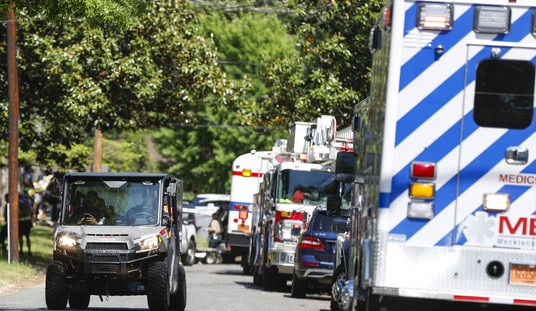Though we still have several months before the Supreme Court hears oral arguments in a case dealing with the constitutionality of New York’s “may issue” carry laws, the written arguments are already starting to trickle in to the Supreme Court, including the plaintiff’s brief that lays out the case to overturn New York’s subjective licensing laws.
On today’s Bearing Arms’ Cam & Co, we’re taking a look at the arguments made by former Solicitor General Paul Clement in that brief, which directly confront the racist history of gun control in the United States; including the statute put in place in New York more than 100 years ago to crack down on immigrants owning and carrying firearms.
From the outset, Clement’s brief hammers New York’s law as not only being out of step with the Constitution, but with the vast majority of states across the country, which the former Solicitor General notes have long recognized that the right to bear arms in public for self-defense is fundamentally important.
That remains true today in most of the Nation—but not in New York. New York continues to make it all but impossible for typical, law-abiding citizens to exercise their right to bear arms where the right matters most and confrontations are most likely to occur: outside the home. The only people who may carry a handgun beyond the curtilage are those who can show, to the satisfaction of a local official vested with broad discretion, that they have a special need for a handgun that distinguishes them from the vast bulk of “the people” protected by the Second Amendment. As to everyone outside that small subset, there is no outlet to carry handguns for self-defense at all. That restrictive and discretionary regime is upside down. The Second Amendment makes the right to carry arms for self-defense the rule, not the exception, and fundamental rights cannot be left to the whim of local government officials.
That’s a key point of Clement’s overall argument; while the Second Amendment may allow for some regulation of the right to keep and bear arms, those regulations can’t rise to the level of depriving the average citizen of their ability to possess or carry a firearm for self-defense. That’s exactly what New York’s “may issue” laws do; requiring applicants to demonstrate that they have some special need or justification for carrying a firearm before the State grants them permission to do so.
Clement argues that, based on the history, text, and tradition of the Second Amendment, New York’s law is an unconstitutional restriction on the rights of residents, and is not a “longstanding law” that should be viewed as presumptively lawful.
Founding-era cases, commentaries, and laws on both sides of the Atlantic, most of which were surveyed in Heller, confirm that the founding generation understood the Second Amendment and its English predecessor to guarantee a right to carry common arms for self-defense. The American tradition of protecting that right remained virtually unbroken in the century and a half following ratification; severe restrictions on the right to carry arms typically arose only in the context of efforts to disarm disfavored groups, like blacks in the South and immigrants in the Northeast. Those outlying and discriminatory efforts only underscore the framers’ wisdom in enshrining the right of all “the people” to keep and bear arms in our founding document.
Clement points out that, while there are plenty of state-level laws on the books dating back to the 19th Century that strictly regulate or even ban the carrying of concealed weapons, the open carrying of firearms was explicitly allowed. That’s not the case in New York, which completely bans the open carrying of handguns. That in turn leaves residents up to the mercy and whims of local judges and county sheriffs when it comes to protecting themselves in public with a firearm.
If you’ve got 20 minutes or so, check out Clement’s entire brief here. We’ll also be taking a look in the near future at some of the amicus briefs that have recently been filed in New York State Rifle & Pistol Association v. Bruen, and I expect the Court will be receiving a steady stream of briefs on both sides of the issue throughout the summer.
By the way, this isn’t the only topic on today’s show. We actually kick off Cam & Co with a conversation with Michael Graham, managing editor of NH Journal, discussing New Hampshire Democrat Maggie Hassan’s decision to back gun control activist David Chipman as permanent head of the ATF. As Graham says, Hassan’s move guarantees that the Second Amendment is going to play a major role in next year’s Senate election, and in his opinion, Hassan did herself no favors by declaring she sees nothing wrong with putting a gun control lobbyist in charge of the federal agency that oversees federal rules, regulations, and laws dealing with firearms, gun makers and gun owners.
I agree, but I also think Hassan’s history of support for gun control made her a long-shot to actually oppose Chipman. Still, given that she won election by just over 1,000 votes back in 2016, and New Hampshire has become a Constitutional Carry state in the years since, this was either an unforced political error on Hassan’s part or a clear demonstration of her devotion to gun control’s toxic and authoritarian ideology.









Join the conversation as a VIP Member